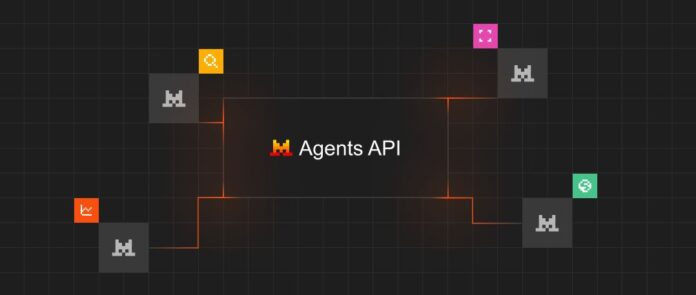Mistral has introduced its Agents API, a framework designed to facilitate the development of AI agents capable of executing a variety of tasks including running Python code, generating images, and performing retrieval-augmented generation (). This API aims to provide a cohesive environment where large language models (LLMs) can interact with multiple tools and data sources in a structured and persistent way.
Overview of the Agents API
The Agents API builds on Mistral’s language models by integrating them with several built-in connectors. These connectors enable agents to execute Python code in a controlled environment, generate images through a dedicated model, access real-time web search, and utilize user-provided document libraries. A key feature is persistent memory, which allows agents to maintain context across multiple interactions, supporting coherent and stateful conversations.
Additionally, the API supports agentic orchestration, allowing multiple agents to coordinate or delegate tasks among themselves. This can enable complex workflows, such as having one agent manage code development tasks while another handles documentation or data retrieval.
Core Components and Functionality
- Code Execution: Agents can run Python scripts in a sandbox, supporting activities like data analysis, visualization, or scientific computations.
- Image Generation: The API leverages Mistral’s FLUX1.1 Ultra model for image creation, which can be applied in domains requiring visual content generation.
- Web Search Integration: Agents have access to up-to-date information through integrated web search, enhancing their ability to provide accurate and current responses.
- Document Library Access: Through connection to Mistral Cloud, agents can incorporate user-uploaded documents into their knowledge base to improve retrieval-augmented generation tasks.
- Persistent Memory: Structured conversation histories enable agents to recall prior context, supporting ongoing and consistent interactions over time.
- Agentic Orchestration: Multiple agents can interact to divide responsibilities and collaborate on multi-step processes.
Applications
This framework has practical applications across several domains:
- In software development, agents can automate repository management, code writing, and review processes by interacting with platforms like GitHub.
- For project management, agents can transform meeting transcripts into product requirements and actionable tasks.
- In financial analysis, agents aggregate and interpret data from diverse sources to provide comprehensive insights.
- Travel planning agents can manage itinerary creation, bookings, and logistics.
- Health-related agents can offer personalized nutrition recommendations and track dietary logs.
Integration with Model Context Protocol (MCP)
The API is built upon the Model Context Protocol, an open standard that enables agents to access external data sources, APIs, and dynamic resources. This design facilitates a modular approach to connecting agents with real-world context and user data, improving decision-making capabilities.
Conclusion
Mistral’s Agents API provides a structured approach to building AI agents capable of integrating language models with external tools and data sources. By supporting code execution, image generation, real-time search, and persistent memory, it offers a foundation for developing AI applications that can maintain context and coordinate complex tasks.
Check out the . All credit for this research goes to the researchers of this project. Also, feel free to follow us on and don’t forget to join our and Subscribe to .


